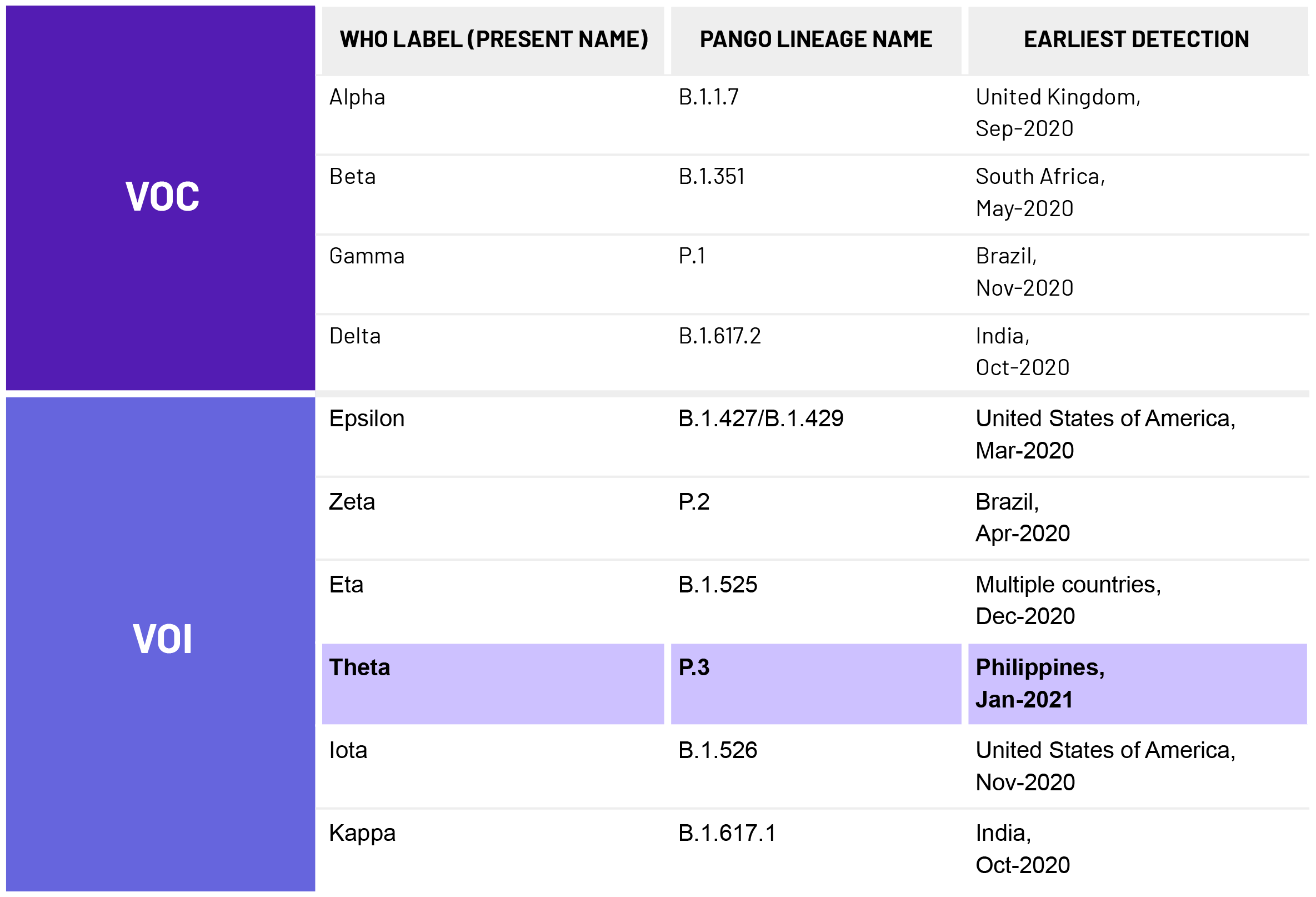In an update dated May 31, 2021 released by the World Health Organization2, an expert group convened by the WHO has come up with a new nomenclature system in naming SARS-CoV-2 genetic lineages which will be easier for use by non-scientific audiences and non-stigmatizing to places where they were first detected. The recommendation is to use letters of the Greek Alphabet, i.e., Alpha, Beta, Gamma to label the variants. As such, Variant of Interest (VOI) P.3 which was first detected in the Philippines (Jan-21)1 is now labeled by WHO as Theta.
It is also important to note that scientists and/or researchers will continue using existing naming and tracking nomenclature systems used by GISAID, Nextstrain and Pango in scientific research. See below WHO guidelines in defining SARS-CoV-2 Variants of Concern and Variants of Interest2:
A Variant of Concern (VOC) is to be associated with one or more of the following changes at a degree of global public health significance:
-
- has an increase in transmissibility or detrimental change in COVID-19 epidemiology; or
- increase in virulence or change in clinical disease presentation; or
- decrease in effectiveness of public health and social measures or available diagnostics, vaccines, therapeutics.
While a Variant of Interest (VOI) if, compared to a reference isolate, its genome has mutations with established or suspected phenotypic implications, and either:
- has been identified to cause community transmission/multiple COVID-19 cases/clusters, or has been detected in multiple countries; OR
- is otherwise assessed to be a VOI by WHO in consultation with the WHO SARS-CoV-2 Virus Evolution Working Group.
For updates on VOCs & VOIs, see WHO’s Coronavirus disease (COVID-19) Weekly Epidemiological Update here.
References:
1Philippine Genome Center. (2021, March 14). PGC SARS-CoV-2 Bulletin No. 7: Detection and characterization of a new SARS-CoV-2 lineage P.3, with spike protein mutations E484K, N501Y, P681H and LGV 141-143 deletion, from samples sequenced through the intensified UP-PGC, UP-NIH and DOH biosurveillance program. Philippine Genome Center. https://pgc.up.edu.ph/sars-cov-2-bulletin-no-7/.
2World Health Organization. (2021, May 31). Tracking SARS-CoV-2 variants. World Health Organization. https://www.who.int/en/activities/tracking-SARS-CoV-2-variants/.
3World Health Organization. (2021, May 31). Coronavirus Disease (COVID-19) Situation Reports. World Health Organization. https://www.who.int/emergencies/diseases/novel-coronavirus-2019/situation-reports.

